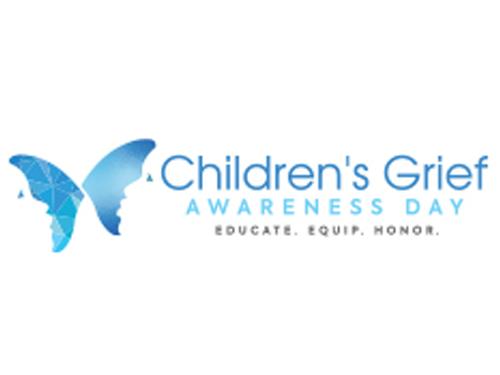How can we help?
888-283-1722
Call us now at 888-283-1722
24/7 Referrals and Nursing Support
Voices of Care Blog

Now and Next Year Children Need COVID Grief Support in Schools
Posted on June 21, 2021 by Kristin Kowalski, MS, School and Community Outreach SpecialistDid you know that one in 15 Massachusetts children will experience the death of a parent or sibling by the age of 18? That equates to about two grieving students in each Massachusetts classroom. (Child Bereavement Estimation Model, JudisHouse.org)
Since the COVID-19 pandemic began in March 2020, Massachusetts has reported close to 18,000 deaths. Children who have lost a loved one during the pandemic have had to navigate their grief of their loved one on top of other non-death losses they may have experienced, such as in-person school, time with friends, team sports and other group activities.
Their grieving process is complicated by possibly not being able to see their loved one for months, visit them in the hospital before they died, nor attend a funeral or memorial due to COVID-19 precautions and restrictions.
Children’s experiences with loss and grief have been difficult. Since children spend most of their weekday time in school, they need grief support in school, too, which means teachers and school staff now play crucial roles in supporting their grieving students.
Most children have returned to in-person learning with mixed feelings and emotions. They spend approximately six hours a day in school and can’t always put their grief on hold. A 7-year-old girl who lost her grandmother in May 2021 due to COVID-19 shared, “I will be in class and my teacher will be talking. Sometimes my grandmother will pop in my head and I can’t get her out.”
“Grief can have an impact on that student’s learning, school performance, social development and emotional health,” says David Schonfeld, MD, director of the National Center for School Crisis and Bereavement. “Schools have a unique and essential role to play in supporting grieving students. Helping grieving students to decrease isolation, increase academic function and get support from family and friends are examples of goals for supporting grieving students.”
Support in Schools
School should be a place where grieving students will feel supported. It is important for teachers and school staff to acknowledge the losses of their students and to be present and authentic. Not saying anything communicates to grieving students that teachers and school staff are unaware or unconcerned about their loss, or that they are unable or unwilling to help them. Some grieving students may internalize the uncertainty they are feeling, which may result in their anxiety, acting out, withdrawal, isolating behaviors, or depression. Giving students the space at school to grieve, discuss their feelings and share their thoughts may help ease some of their worry during this ambiguous time. The goal is to allow an opportunity for grieving students to express their grief, not take away the pain of grief.
During the upcoming year and beyond, children will continue to need grief support in schools as they sort out their feelings. Even as new COVID deaths continue to decline, the number of students who are grieving will continue to rise. Teachers and school staff already have the skills they need to support their grieving students – they are empathetic and good listeners. With greater awareness of the how many students may be grieving and understanding the important supporting role they play, teachers and school staff will be better prepared to help more children and their families feel supported during their grief.
Support at Home This Summer
This summer brings opportunity to families to spend time healing together with their children. Parents and caregivers can help their child (ren) feel supported and safe by:
- Maintaining a routine, regular mealtimes and bedtimes
- Helping them enjoy themselves, encouraging play and being with others
- Talking and sharing stories about what happened and allowing them to ask questions
- Listening
- Creating new summer traditions and rituals
- Providing opportunities to express feelings through arts and crafts, reading books about grief and loss, having a dance party, and other memory making activities
When families learn to talk together about what happened and that feeling sad is OK, kids will open up more.
For more information and resources on grief education and support for schools and communities, please visit www.caredimensions.org/grief-support/community-programs.cfm or call 855-774-5100.
About the author
Kristin Kowalski, MS, is a school and community outreach specialist with Care Dimensions. Email [email protected] to contact Kristin directly.
Additional Posts
Tips for Caregivers of Grieving Children with Developmental Delays
Posted on January 22, 2026 by Bridget McHallam, Child Life Intern in ChildrenWhen children with developmental delays experience loss, grief can look different. This article explores how children understand death and offers practical ways caregivers can provide comfort and support. ...
Continue readingMemory Making Activities for Children Before and After a Death
Posted on November 17, 2025 by Bridget McHallam, Child Life Specialist Intern in ChildrenFor many children and teenagers, engaging in memory-making activities can be a meaningful way to express love, connection, and remembrance. Here are some suggested activities. ...
Continue readingChildren's Grief Awareness Month: Why it Matters
Posted on October 28, 2025 by Kasey Griffin, MS, CCLS in ChildrenEvery November, we recognize Children’s Grief Awareness Month. Here are some tips on how you can help children who are grieving. ...
Continue readingAnyone—patient, family, care provider—can make a referral. Fill in the form online or call us today.
Since 1978, Care Dimensions, formerly Hospice of the North Shore, has provided comprehensive and compassionate care for individuals and families dealing with life-threatening illnesses. As the non-profit leader in advanced illness care, we offer services in over 100 communities in Massachusetts.
Copyright 2026 | Care Dimensions, 75 Sylvan Street, Suite B-102, Danvers, MA 01923 | 888-283-1722 | 978-774-7566 |









